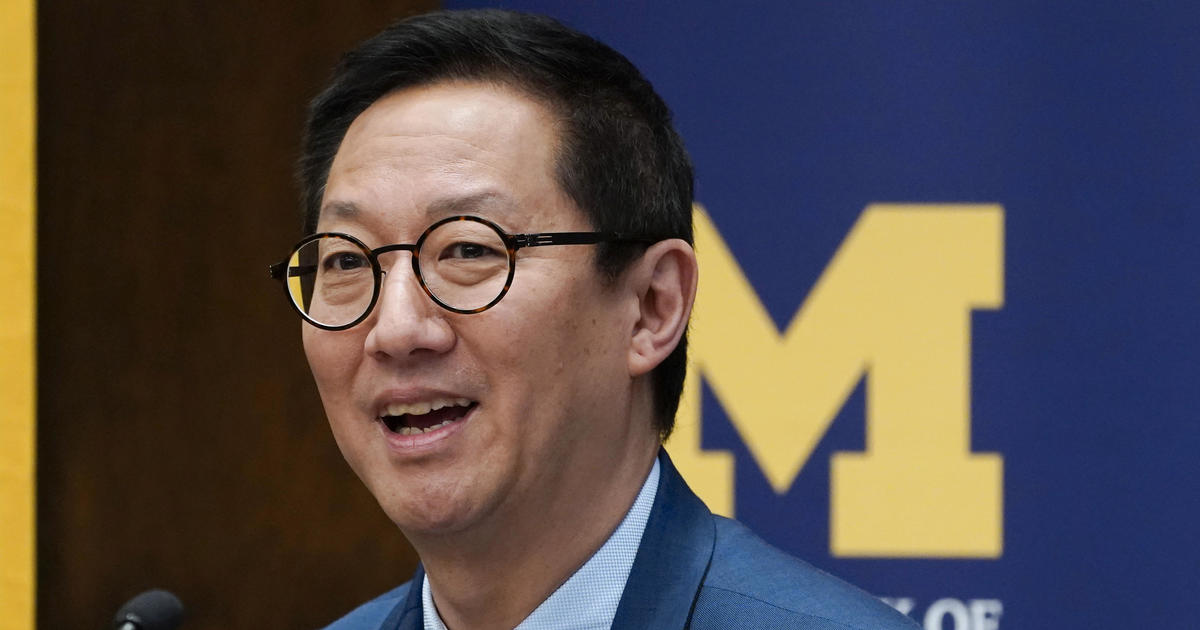UM Gets Grant To Help Great Lakes Cities Adapt To Climate Change
ANN ARBOR -- Faced with increasing risks of intense storms, heat stress, clean water availability and economic hardship, municipal leaders are seeking high-quality, location-specific analyses to help plan for climate change impacts.
That is the focus of a new $1.2 million University of Michigan research project called the Great Lakes Adaptation Assessment for Cities.
Led by UM's Graham Environmental Sustainability Institute and supported by The Kresge Foundation with $600,000 in matching funds, the three-year project seeks to strengthen the science and decision-making necessary for more effective urban climate adaptation in the Great Lakes region, in both Canada and the United States. Researchers, staff, students and stakeholders from across the region will collaborate to make this happen.
"While there is abundant research on climate change at national and global scales, there is a gap in regionally focused adaptation planning for effectively addressing this pressing issue," said Arun Agrawal, professor of natural resources and environment and co-principal investigator for the project. "The Great Lakes project is helping to fill this gap by providing the place-based information needed for developing and improving policy decisions and infrastructure investments."
Don Scavia, director of the Graham Institute and co-principal investigator on the project, concurred.
"Every day, city administrators, land-use planners, mayors, and other key decision makers face questions about to how to better prepare for, and deal with, the impacts of climate change in our region," he said. "This project will generate datasets, tools, and a network of stakeholders that will be extremely useful for decision makers in private and government sectors."
In addition to the information amassed by participating researchers, a significant amount of data will be harnessed from the Great Lakes Integrated Sciences and Assessments Center -- a collaboration between UM, Michigan State University, Ohio State University, and Michigan Sea Grant, which is supported by the National Oceanic and Atmospheric Administration.
"The purpose of GLISA is to connect researchers and decision makers around the issues of climate change and variability, so our work is a perfect fit for this project," said Michigan State professor and GLISA co-principal investigator Thomas Dietz. "GLISA is helping to translate national research to regional levels, and the Great Lakes Cities project is synthesizing information down to practical, city-level applications. This work is bringing timely climate adaptation data to people who are making critical decisions about infrastructure and human health."
As part of the project, GLAA-C researchers will work closely with urban leaders in five Great Lakes cities to build a network of decision-makers and scientists invested in the sustainability of Great Lakes cities. One of the first cities confirmed to participate in the program is Grand Rapids, whose mayor, George Heartwell, attended an initial project-scoping meeting at UM in October 2010.
"Grand Rapids is strong in climate mitigation, but we're just beginning to understand the complexities of vulnerability assessment and adaptation planning," he said. "I'm looking forward to engaging in this project to expand our knowledge base and capabilities in this critical area."
Other UM faculty involved with the project include: Elisabeth Gerber; School of Public Policy; Larissa Larsen, Taubman College of Architecture and Urban Planning; Maria Lemos, School of Natural Resources and Environment; Marie O'Neill, School of Public Health; and Ricky Rood, Atmospheric, Oceanic and Space Sciences. SNRE postdoctoral fellow Ahmad Safi is also working on the project.
With support from the Graham Foundation, the Graham Institute is dedicated to fostering cross-disciplinary collaboration to create and disseminate knowledge and to offer solutions related to complex sustainability issues. To learn more about the Graham Institute and its Integrated Assessment programs, visit www.graham.umich.edu.
The
Kresge Foundation is a $3.1 billion private, national foundation that seeks to influence the quality of life for future generations by creating access and opportunity in underserved communities, improving the health of low-income people, supporting artistic expression, increasing college achievement, assisting in the revitalization of Detroit, and advancing methods for dealing with global climate change. The foundation works in arts and culture, community development, education, the environment, health, and human services. For more information, visit www.kresge.org.



